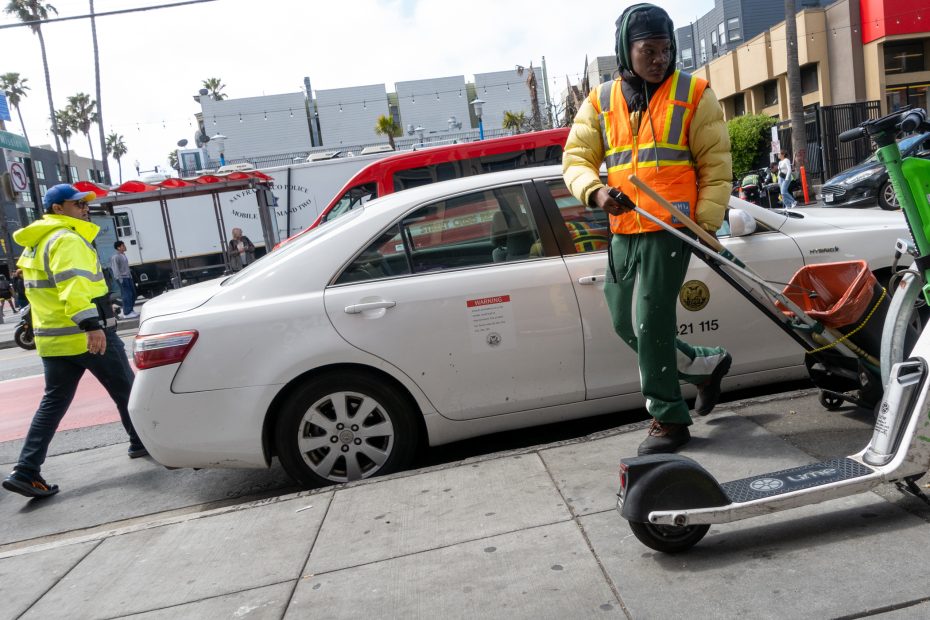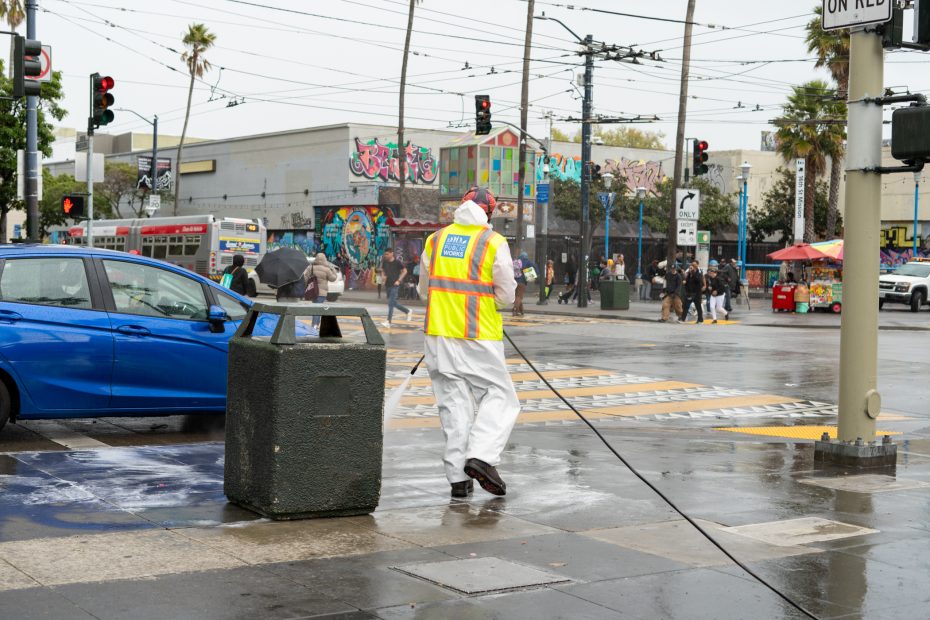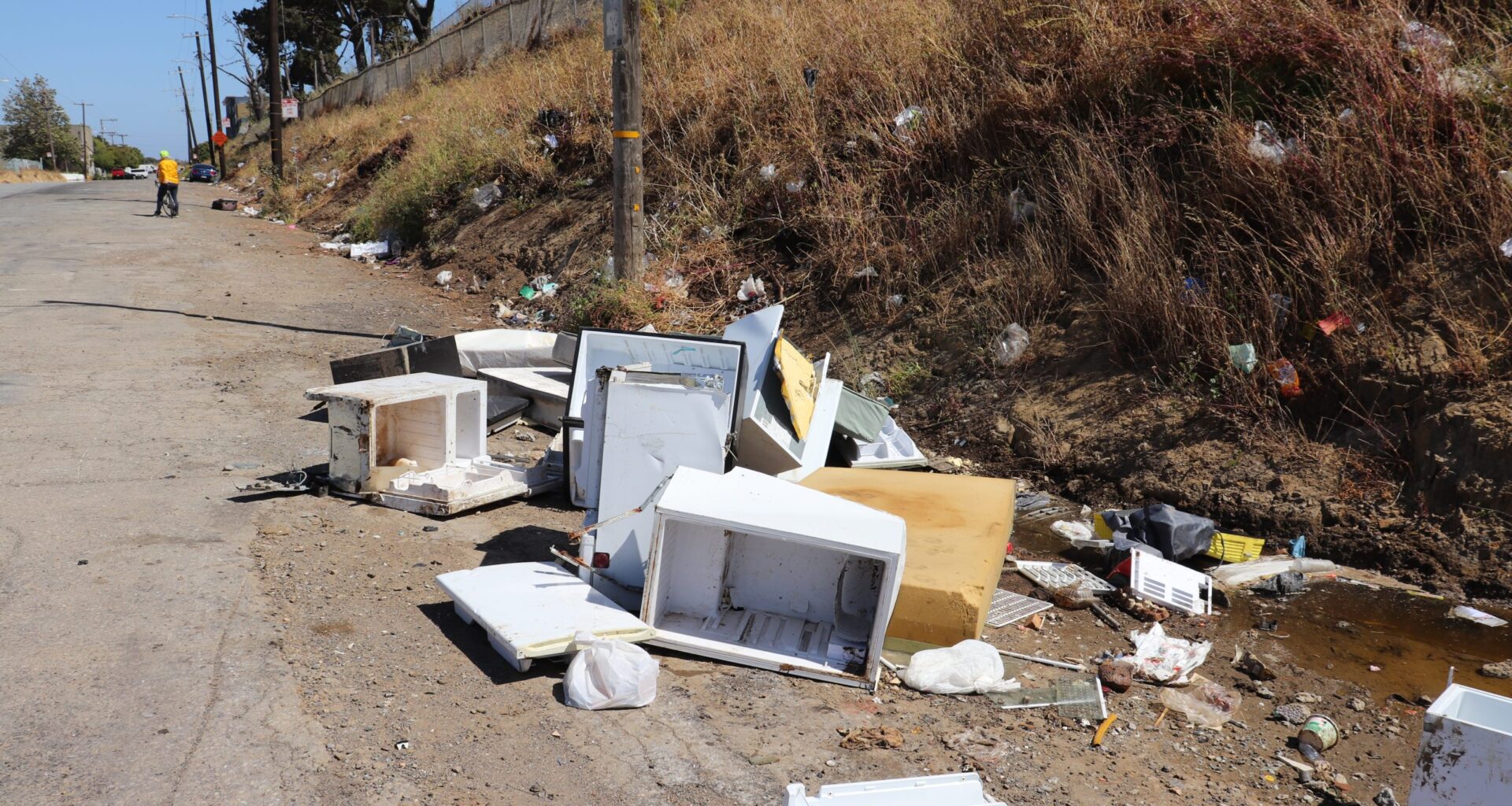San Francisco spent nearly $60 per person, or $1 million per square mile, on its street cleaning efforts, not including overhead costs. That’s significantly more than its peer cities such as Los Angeles and San Jose, a city audit released Wednesday found.
In fiscal year 2024-25, the city budgeted nearly $47.8 million for street cleaning, or $1 million per square mile. In comparison, Los Angeles budgeted $74.7 million — that is $19.54 per capita or $159,205 per square mile.
And though San Francisco has increased its spending on street cleaning by 63 percent in the past six fiscal years, the Department of Public Works doesn’t spend all the money in its budget, leaving millions of dollars on the table, the audit shows.
For the money Public Works does spend, the department fails to track or report spending “in a meaningful way,” states the report, prepared by the Budget and Legislative Analyst.
“The Department’s current budgeting practices do not allow for nimble responses to common and reasonable requests for information related to street cleaning services, which is essential to ensuring transparency and accountability,” the report continues.
Public Works has underspent on average by 11 percent each year, according to the report.
In fiscal year 2023-2024, $15.2 million was left unspent. Over $11 million was used for purposes other than street cleaning, the report says. Those include funds earmarked for enforcement against illegal street vending (nearly $4 million), support for the Asia Pacific Economic Conference in 2024 (a little under $1 million) and emergency winter storm response ($1.6 million).
Public Works strongly disputed the findings. In a response included in the audit, Carla Short, the director of Public Works, called the budget finding “egregious” and “reckless.”
Of the $15.2 million unspent, Short wrote, $4.1 million is money that has already been committed to future contracts, but not yet spent. These funds are reserved and not actually “available balance” to spend.
In addition, due to the city’s budget crisis, all departments were directed by former Mayor London Breed and Mayor Daniel Lurie to hold back on spending mid-year, she wrote. Other funds were placed on reserve, held to offset general fund shortfall, or applied to other emergencies.
“We cannot spend money that we are not allowed to, nor are we permitted to unilaterally reappropriate or divert funds,” Short wrote.
In what it called a “rare step,” the Budget and Legislative Analyst disputed the letter and stood by its findings that Public Works underspent its street cleaning funds. The Budget and Analyst also blamed Public Works for delays and lack of cooperation in responding to the audit.
 Two DPW employees cross paths on 16th and Mission. Photo by Gustavo Hernandez on May 2, 2025.
Two DPW employees cross paths on 16th and Mission. Photo by Gustavo Hernandez on May 2, 2025.
The audit also found:
Limited performance monitoring and reporting, with increasingly vague goals and milestones since 2015.
Public Works could improve its efficiency and effectiveness of its operations by updating its operational plans at least annually and conducting more evaluations of outcomes.
The city’s mechanical street sweeping is not evaluated regularly to determine best route scheduling, frequency and labor needs. Current monitoring is not sufficient to identify problems with its operations.
Many other comparable cities surveyed by the audit report on street and sidewalk cleaning performance more often than San Francisco does. Nearly half of respondents report weekly, while San Francisco reports every other month.
The audit also found that the city’s “unreliable” bike lane sweeping is dangerous for cyclists, due to hazardous debris left in bike lanes. Bike lane sweeping requires a specialized, compact sweeper, but these sweepers have proven costly and unreliable.
Additionally, illegally parked cars block the sweeper from reaching curbs, leading to “hundreds of miles of unswept street” each year.
 A Public Works employee pressure washes the sidewalk of 16th Street Plaza. Photo by Gustavo Hernandez on March 31, 2025.
A Public Works employee pressure washes the sidewalk of 16th Street Plaza. Photo by Gustavo Hernandez on March 31, 2025.
The city’s approach to illegal dumping is also hamstrung by ineffective tracking, inconsistent enforcement and lack of written internal procedures, the report states.
Public Works relies on 311 data to quantify the scale of illegal dumping, but the system does not explicitly track these incidents, making it difficult to accurately assess location and frequency.
In addition, illegal dumping enforcement is weak, the report says. Citations have been declining since 2020 and the department has not actively pursued unpaid citations for the past 10 years. Some $3 million fines have gone uncollected due to lack of a formal collection process.
The city has two surveillance pilot programs — announced back in 2019 and in 2023 to support enforcement — but these have registered “minimal progress.” The 2023 program to deploy 10 licence plate reader cameras to hotspots has not assigned or trained staff to review the footage, as of mid-2025.
Lastly, the city’s Pit Stop program, which started in 2014 and aims to provide clean public bathrooms, has “dramatically” reduced in size since 2020. No city department has determined the number of Pit Stop facilities that should be maintained, the report says.

